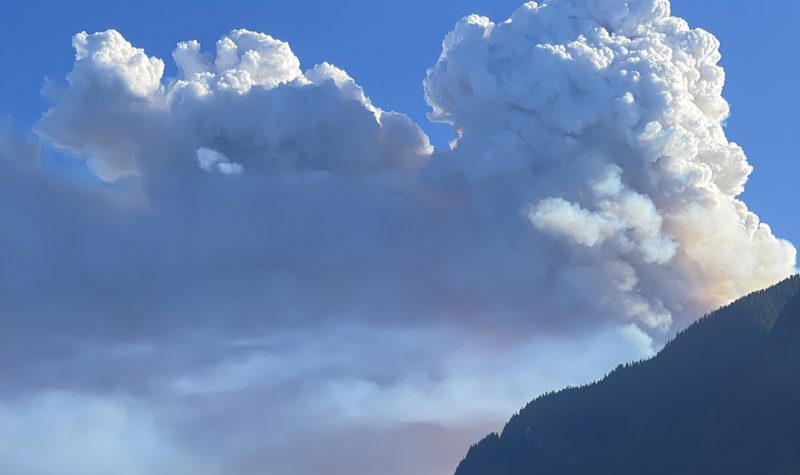British Columbia remains in a provincial state of emergency due to wildfires burning across in the central and southeastern interior of the province.
An emergency order banning temporary accommodation for non essential reasons remains in place for the southern interior, including Kelowna-West, Kelowna, Kamloops, Oliver, Osoyoos, Penticton and Vernon.
Premier Daivd Eby spoke about the ongoing provincial emergency at a press conference on Monday.
“It is a very dangerous and fluid situation, please understand this is a very stressful situation for people in these local areas,” he said. “The last thing they need is disaster tourists coming and interfering with rescue efforts.”
There is currently a special air quality statement by Environment Canada for Vancouver Island south of Sayward as well as the Lower Mainland and Interior of the province due to wildfire smoke.
The current air quality in Nanaimo is considered low-risk and Environment Canada predicts the skies will continue to clear over mid-Vancouver Island on Tuesday, before the smoke returns on Wednesday.
The 1,577 hectare Mount Con Reid fire in Strathcona Park continues to burn out of control but is not being actively suppressed as they do not pose a risk to public safety or infrastructure according to the BC Wildfire Service.
Evan Lloyd, emergency program manager at the City of Nanaimo, says there are some simple things you can do to be better prepared for an emergency.
“Some of the main things we encourage people to do are to be prepared at home with some supplies that will support them to be self-sufficient for several days if there's a major emergency or disruption in the region,” he said.
Lloyd recommends that people stock up with at least three days of food and water, which would be four liters of water a day per person, and ideally have supplies such as critical medication that they could survive on for up to a week.
While the City of Nanaimo does have plans to open up to four evacuation centres if needed, Lloyd said that those are a last resort.
“Evacuations are a very difficult thing to plan for, because circumstances can be of all kinds of types,” he said. “So if we're resilient at home, it really increases the resilience of the community at large.”
Lloyd said that a big part of being prepared is also building a plan.
“Having contact information for friends and family that might be outside of the region is important,” he said. “Just having a general plan on how you will meet up and how you will coordinate with each other if there's a major emergency.”
Municipalities in mid-Vancouver Island also have emergency alert systems that you can sign up for to get up-to-date local information.
In the City and Regional District of Nanaimo, which includes the communities of Lantzville, Parksville and Qualicum Beach, the emergency alert system uses the Voyent Alert app that can be downloaded on apple and android devices, or you can go to voyent-alert.com and sign up. If you don’t have an internet connection you can call the city at 250-758-5222 and public works staff will help you register.
In the Cowichan Regional District, the app used is Alertable, while the Comox Valley Regional District, which includes Courtenay, Comox and Cumberland, has an alert system that you can sign up for at comoxvalley.connectrocket.com or by calling 250-334-6000.
While costs for everything are rising, Lloyd says even having some basic supplies can make the difference in an emergency.
“You don't have to go and build an underground bunker and do anything too extreme, even just a small step of having a couple four liter jugs of water stored in a closet, and some cans of chili, maybe some flashlights, some candles, that really goes a long way.”
Listen to CHLY’s story below:


